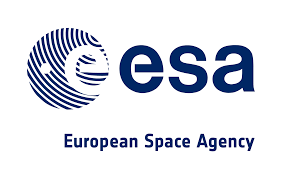There is a big debate in the U.S. and across the globe in other space-faring nations and organizations. The question being debated is whether the focus for the next phase of the exploration of space should be the Moon or Mars. At the moment, NASA is planning to stage a manned mission to Mars by the early 2030s while other groups are calling for a return to the Moon.
The European Space Agency “is an intergovernmental organization of twenty two member states, dedicated to the exploration of space. Established in 1975 and headquartered in Paris, France, ESA has a worldwide staff of about two thousand and an annual budget of about six billion dollars.”
“ESA's space flight program includes human spaceflight; the launch and operation of unmanned exploration missions to other planets and the Moon; Earth observation, science and telecommunication; designing launch vehicles; and maintaining a major spaceport, at Kourou, French Guiana. The main European launch vehicle Ariane 5 is operated through Arianespace with ESA sharing in the costs of launching and further developing this launch vehicle.”
The ESA is working on an international project for a manned lunar base which it refers to as the “Moon Village.” The Director General of the ESA describes its proposed “Moon Village” as “a potential international launching pad for future missions to Mars and a chance to develop space tourism or even lunar mining.” He said that the term “Moon Village” had been chosen deliberately to make the purpose of the project clear to the general public.
"A village is something where different people are gathering with different capabilities, different opportunities, and then they build a community. But for me, it’s also a stepping-stone, a test bed ... to go further, for instance, to Mars and beyond." The ESA believes that "One driver of this renewed interest in the Moon is to assess the economic feasibility of using lunar resources for sustaining human surface-exploration activities,
It has been reported by ESA spokesmen and Chinese media sources that the ESA and China are discussing a potential collaboration on a manned lunar outpost such as the Moon Village as well as other joint space ventures.
Pal Hvistendahl, an ESA spokesman said that "The Chinese have a very ambitious moon program already in place. Space programs have changed since the space race of the '60s. We recognize that to explore space for peaceful purposes, we need international cooperation." China plans to visit the Moon before the end of this year to collect mineral samples from the visible side. Next year China intends to launch its first mission to the far side of the Moon to bring back mineral samples. The ESA hopes to be able to analyze the samples returned from the Moon by this year’s lunar mission.
The Moon is only a few days away with current space propulsion technology. Mars is months away with the best engines. An expedition to Mars would basically be “on its own” if anything went wrong. Problems at a Moon base could be dealt with by emergency flights from Earth in a matter of days. It may be possible to use solar power to split lunar water into hydrogen and oxygen for fuel for flights beyond the Moon. For a lot of reasons, it makes sense to establish a manned base on the Moon before considering a colony on Mars.
